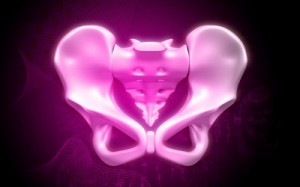Home >> Glossary, My Pregnancy, Pregnancy Hormones >> Progesterone
Progesterone
Progesterone is a very important pregnancy hormone that is always at work in the female body, but during pregnancy its role becomes even more important. Progesterone is also known as the pro-pregnancy hormone, because without it your placenta and uterus cannot support your pregnancy. It has an important role not only during your pregnancy, but also during your monthly menstrual cycle and in increasing your libido. It is produced in your ovaries, adrenal glands and placenta.
In weeks 1 and 2 of pregnancy, progesterone and estrogen thicken your uterine lining so that your fertilised egg can implant. It also causes your uterine lining to release important proteins that make the implantation and nourishment of the embryo possible. Your progesterone levels are constantly high throughout your 40 week pregnancy as it maintains your pregnancy, inhibits ovulation during your pregnancy and begins the development of your milk-producing glands, which are important for lactation. For all these reasons, progesterone is a very important hormone used in many fertility treatments.
What does progesterone do to your body?
You may love that progesterone is helping you maintain your pregnancy, however this maintenance does come with a cost. Progesterone can be blamed for many of your fun pregnancy symptoms :
- It causes heartburn, indigestion, constipation and a lot of bloating as it relaxes your uterine muscles so that your uterus can expand
- It makes your breasts very tender and sensitive to the lightest touch
- It can give you occasional heart palpitations, because it increases your heart rate making heart flutters more likely.
- It is one of the many hormones behind the mood swingsyou and your partner (and probably everyone around you) aren’t going to miss once you’ve given birth
- It increases your sweat gland activity
- It causes breakouts and acne, even if you never suffered from this skin conditions before
- It can cause bleeding gums, which are usually soon followed by pregnancy gingivitis
- It causes hip and pelvic bone aches in the later stages of your pregnancy as it softens your cartilage, joints and ligaments in preparation for labour.
Tags: conception, estrogen, fertility treatments, labour, lactation, menstrual cycle, pregnancy, pregnancy hormones, pregnancy symptoms, pregnant, progesterone, week 1 pregnant, week 2 pregnant

